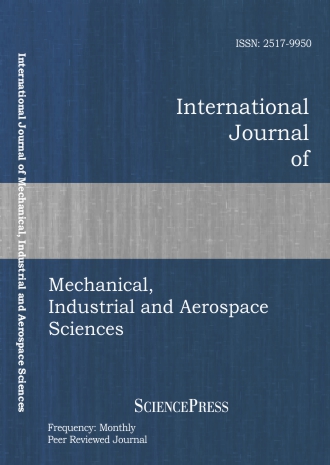
Scholarly
Volume:6, Issue: 8, 2012 Page No: 1520 - 1525
International Journal of Mechanical, Industrial and Aerospace Sciences
ISSN: 2517-9950
1016 Downloads
FAT based Adaptive Impedance Control for Unknown Environment Position
This paper presents the Function Approximation Technique (FAT) based adaptive impedance control for a robotic finger. The force based impedance control is developed so that the robotic finger tracks the desired force while following the reference position trajectory, under unknown environment position and uncertainties in finger parameters. The control strategy is divided into two phases, which are the free and contact phases. Force error feedback is utilized in updating the uncertain environment position during contact phase. Computer simulations results are presented to demonstrate the effectiveness of the proposed technique.
Authors:
References:
[1] S. Jung, T. C. Hsia and R. G. Bonitz, "Force tracking impedance control